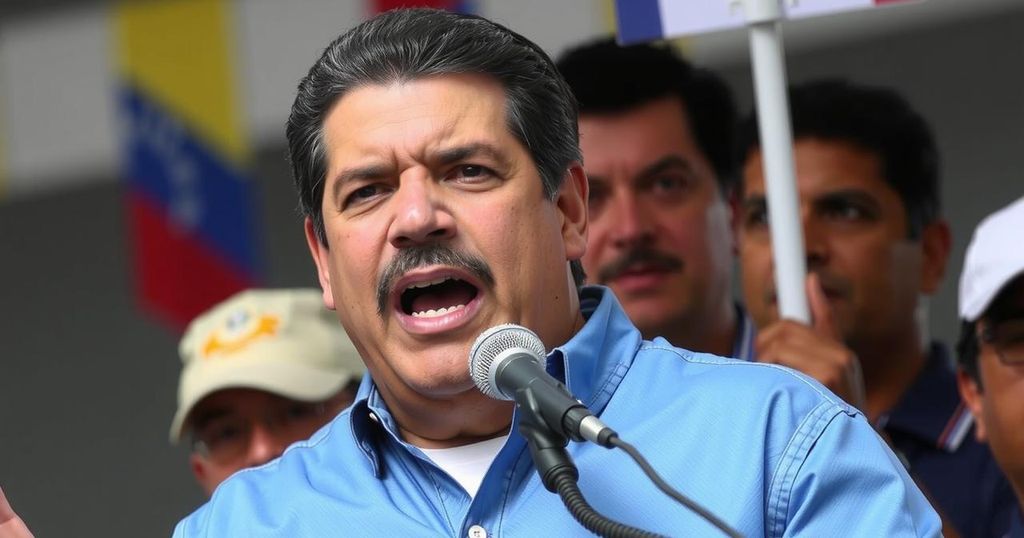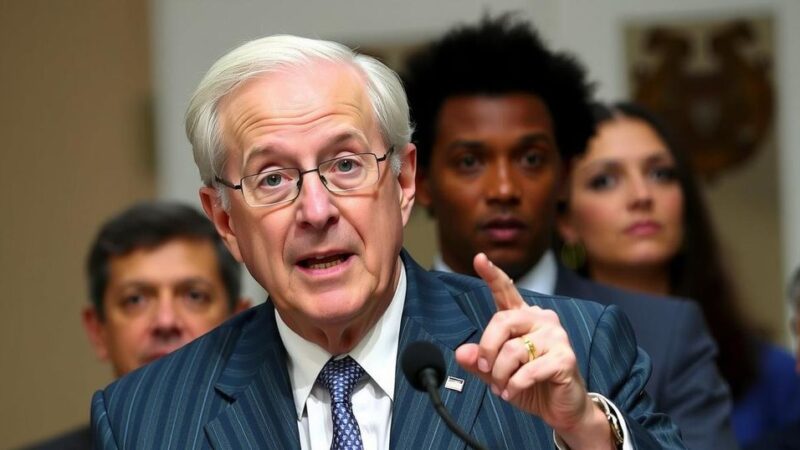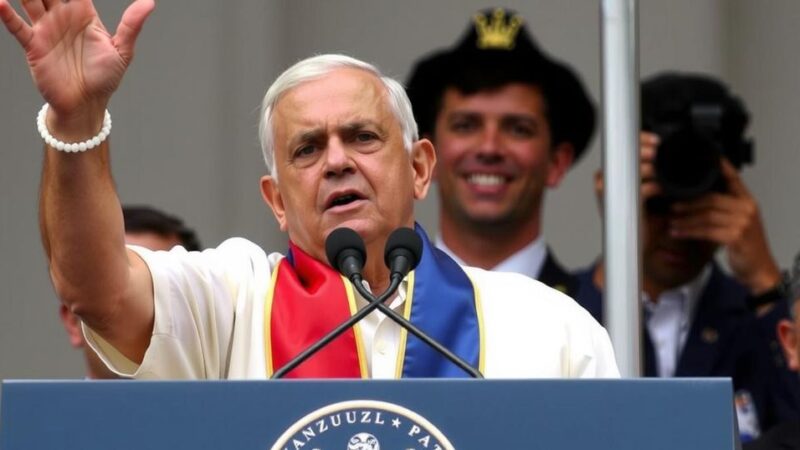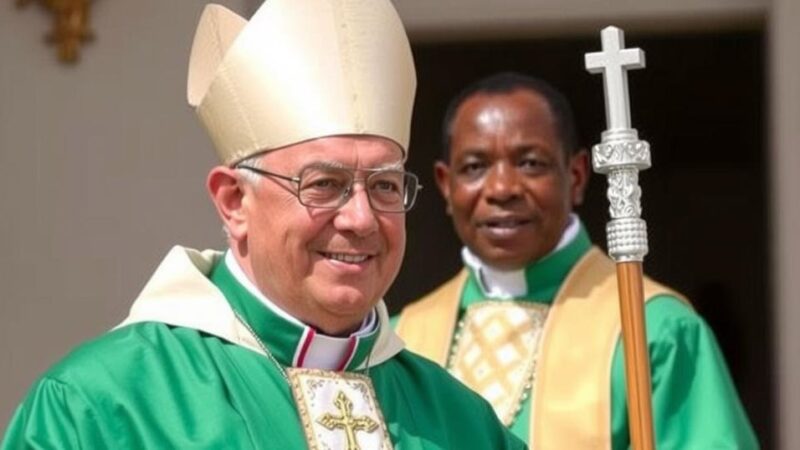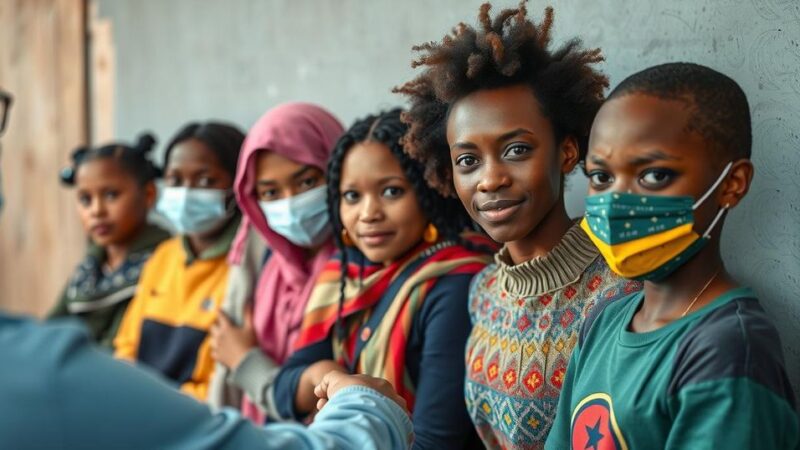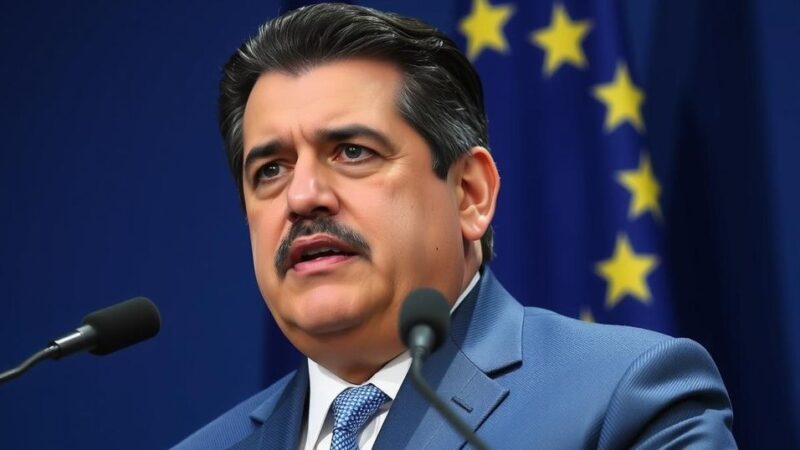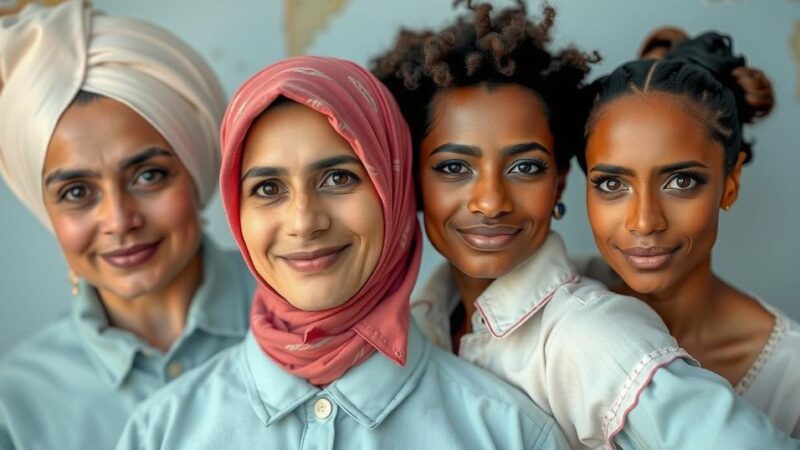Nicolás Maduro was sworn in for a third term as Venezuela’s president amid international condemnation and allegations of election fraud. Key leaders boycotted the ceremony, while Maduro claimed victory amid local and global pushback. The opposition is committed to resisting his rule through non-violent measures despite repression.
Venezuela’s Nicolás Maduro has officially begun his third presidential term amidst widespread outcry regarding allegations of electoral fraud. The inauguration, which took place in Caracas, saw a low turnout as key democratic leaders, including Brazil’s Luiz Inácio Lula da Silva and Colombia’s Gustavo Petro, notably absent, citing their refusal to recognize the election results.
Maduro, having governed since his initial election in 2013, has moved the nation towards increasingly authoritarian practices, asserting that he has not been provided evidence to support claims of electoral theft. His opponent, Edmundo González, has claimed victory based on public dissatisfaction with the ongoing economic collapse while Maduro, dressed in the national presidential sash, attempted to reinforce his legitimacy.
In a lengthy speech during the ceremony, Maduro depicted himself as a champion of democracy and anti-imperialism. He characterized his opponents as fascists and oligarchs, targeting regional political figures with sharply worded accusations. His dismissal of the international community’s criticism further fueled tensions, prompting figures such as Chilean President Gabriel Boric to label Maduro’s regime as dictatorial. Furthermore, U.S. Secretary of State Antony Blinken emphasized the lack of legitimacy in Maduro’s claim to the presidency following the disputed elections.
In response to the contentious electoral climate, the United Kingdom has reiterated its condemnation of Maduro’s government. Foreign Secretary David Lammy declared the election results to be neither free nor fair, and the U.S. has announced increased rewards for information pertaining to Maduro and his key associates. Meanwhile, Brazil’s position on Venezuela has deteriorated, leading to a vow from opposition leaders to continue resisting Maduro’s regime despite facing repression.
With the opposition determined to combat Maduro’s grip on power, their strategies are focusing on non-violent resistance and civil disobedience, indicating their commitment to reclaiming the sovereignty of the Venezuelan people by stating, “Venezuela will triumph! It is time to resist!” – Juan Pablo Guanipa.
In conclusion, while Maduro asserts his authority, both domestically and internationally, there remains significant opposition to his regime’s legitimacy. The backlash from prominent leaders across the globe, coupled with internal dissent, underscores the complexities surrounding Venezuela’s political landscape and the quest for democracy in the region.
Nicolás Maduro assumed power in Venezuela in 2013 following the death of Hugo Chávez. Since then, his administration has faced increasing criticism for human rights abuses, suppression of dissent, and manipulation of electoral processes. The country has endured a severe economic crisis, prompting mass protests and a significant exodus of its citizens. The contentious July 2024 election results have only heightened international scrutiny and local discontent, positioning Maduro’s government as one facing legitimacy challenges from both internal and external forces.
The recent inauguration of Nicolás Maduro has incited significant controversy and condemnation, as allegations of electoral fraud continue to plague his presidency. Despite claims of legitimacy, the absence of key democratic leaders from his swearing-in ceremony signals mounting international isolation. With opposition leaders vowing resistance, the future of Venezuela’s democracy appears precarious, reliant on both local activism and global support to unseat an increasingly authoritarian regime.
Original Source: www.theguardian.com

